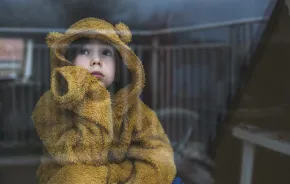 My mother thought I was a piano prodigy because I could play Chopin’s "Minute Waltz" in 50 seconds.
My mother thought I was a piano prodigy because I could play Chopin’s "Minute Waltz" in 50 seconds.
My childhood unfolded accordingly: plenty of practicing, recitals and music competitions. Our house teemed with passionate dedication to the craft. The dedication was my mother’s, not mine, and by age 16 I began to engage in less lofty teenage-y pursuits. Soon after that, I took up guitar, for which I had absolutely no talent.
The good news: I did find my passion — writing — and worked tenaciously to develop that skill with talent. The great news: I can still play the "Minute Waltz" … at an impressively low speed.
There’s no shocking moral to this familiar vignette. Everyone knows that whether we’re talking music, dance, art or athletics, talent plus commitment plus encouragement can equal success. Trouble is, you typically need all three. Talent — even plenty of it — is never enough.
And true children's talent — the Yo-Yo Ma kind of talent (not only did he play the cello for Barack Obama’s inauguration, but at age 7 he played for President Kennedy) — surfaces quite rarely. That’s why Tiger Woods is, well, Tiger Woods, and that’s why, try as they might, the movie studios will never find another Shirley Temple.
“You’d be surprised how many parents think their child is a gifted musical genius,” says Diane Williams, who, as piano director at The Suzuki Institute of Seattle, should know. “It’s usually not the case.”
What it takes
While Williams rarely sees extraordinary talent in children, she does see extraordinary students. That’s because they work at it. “What it takes is extremely keen interest and commitment,” she says. “I’ve had students who I thought would never get it. I’ve thought of telling them, ‘Try soccer.’ And then they end up being incredibly amazing.”
Cindy Frank-Linkon runs The Studio, a fine arts program in Bellevue. Frank-Linkon often spots talented students, but knows kids “can only get so far with that.” She believes in teaching students the basics and watching where that takes them. “Every child has some ability. They might not even know they have it,” she says. “They can all learn to draw and paint — and they all get better as they go along.”
But what about that rare tot who throws a mean curve ball or taps out “Ode to Joy” on her Fisher-Price baby grand? Don’t her parents have an obligation to help nurture and develop her talent?
Absolutely, say experts. Just don’t rush to enlist the private coaches or invest in the Steinway. Remember that the child's raw ability, coupled with interest and perseverance, can emerge later . . . and in a completely different field.
That’s why parents should introduce their youngsters to an assortment of options and activities. “Your job is to expose them to lots of different things and then observe what they choose to spend their time on,” says Paula Olszewski-Kubilius, author of Early Gifts: Recognizing and Nurturing Children’s Talents. “Make sure you stay open minded. Kids do change.”
And that’s why you should rethink those grandiose plans you’ve got for your 4-year-old tennis phenom. Yes, there’s always that very, very slim chance he’s headed for Wimbledon. More likely, he’s a precocious athlete whom you’d like to see achieve the superstar status you’ve always craved.
“So much of the early talent thing is projection,” says Wendy Mogel, Ph.D., psychologist and author of The Blessing of a Skinned Knee. “Many parents measure their own worth and effectiveness by their child’s success.” It’s not unusual for kids to show fleeting “bursts of precocity” that soon fade, Mogel says.
Zeroing in
Elisa Barston makes sure her daughter, Melia, develops a broad range of interests. That’s why Melia, 6 and a half, takes gym, ballet and Chinese classes. “I want her to find things she loves,” says Barston.
Melia also studies violin, and has been doing that since she was 3 and a half. It’s that instrument which clearly claims top spot in the Barston family. Elisa Barston is the Seattle Symphony’s principal second violin and former associate concertmaster of the St. Louis Symphony Orchestra. Her own mother, a cellist, studied at Juilliard, and her husband, an orthopedic surgeon, also plays the violin. Clearly, Melia is growing up in a house infused with a culture that covets musical talent.
Odds are, Melia’s got talent, lots of it. Yet Barston downplays talent and spotlights traits such as resolve, determination and commitment. She internalized those values growing up and hopes Melia will absorb them as well.
In Melia’s world, music is a given — just like school, homework and family dinners. “You practice every day that you eat, sleep and study,” Barston says. “It’s your job.” Melia doesn’t always embrace her job with joy. “She’ll say, ‘I don’t want to practice.’ I tell her this is one of the things we do,” says Barston.
Often, kids opt out when the going gets tough. “They are not old or mature enough to understand the value of music — that it’s a blessing to learn it,” she says. “It breaks my heart when parents just let their children quit.”
While exposing kids to a collection of classes makes sense when they’re young, it makes less sense once they find a focus, experts say. “When you’re spread out over too many things, you can’t know what it is to devote the kind of energy and discipline it takes to be truly great at something,” notes Barston.
When should kids start shedding their multiple activities and — if they find a passion — zero in on that one? “As they get toward middle school they have to make choices,” says Olszewski-Kubilius. “That’s when you want to see them pursuing their field of interest.” And that’s when you want to give your kids some space. “For parents, this is a process of being involved and supportive — then backing off and letting teachers and coaches play bigger roles.”
Linda Morgan, ParentMap associate editor. Learn more about Linda and her book, Beyond Smart, at linda-morgan.com









